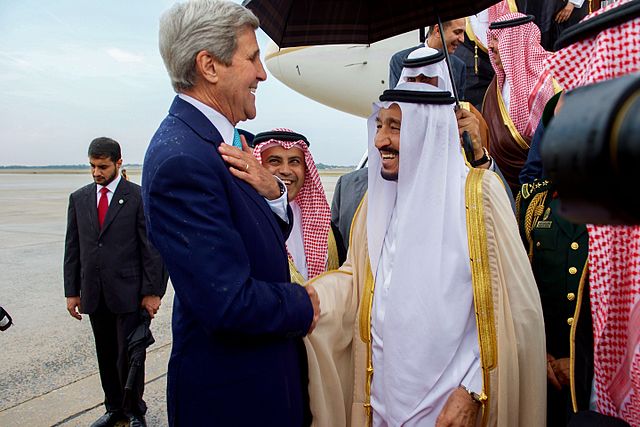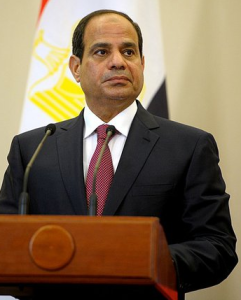
U.S. Secretary of State John Kerry speaks with King Salman bin Abdulaziz of Saudi Arabia after he deplaned from his Boeing 747 following his arrival at Andrews Air Force Base in Camp Springs, Maryland, on September 3, 2015, to visit President Barack Obama. [State Department photo/ Public Domain]
“Oman has always in the past taken positions and policies that are contrary to the Gulf positions regarding the region. This now shows the return of Oman to the Gulf consensus against Iran and its political positions,” one source said.
Siding with Saudi Arabia against Iran is a huge shift for Oman since “it is known that Oman has been close to Iran, the traditional enemy of Saudi Arabia and the Gulf countries.”
Saudi Arabian Prince Mohammed will most likely visit Muscat soon to prepare the groundwork for a visit to Oman by King Salman, the source added.
One reason given for the change in policy is that Oman realized that there was a definite “lack of seriousness and of benefits” of cooperation with the Iranians.
The 40-country alliance was announced last December by the Saudis, a move that was met with approval by the United States. Washington has been urging the region to unify in a campaign to fight ISIL militants who have control of land in Iraq and Syria.
ISIL had threatened the monarchies of the Gulf states, promising to overthrow the kingdoms, and has launched several attacks on Shi’ite Muslim mosques and military personnel in Kuwait and Saudi Arabia.
